Covid: Will variant force Nightingale hospitals to open?
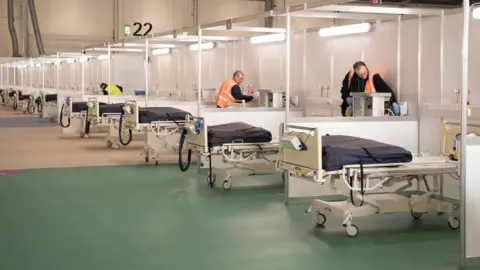 Reuters
ReutersThere is mounting pressure on hospitals, with growing numbers being admitted each day.
The fastest growth is being seen in London and the South East, where the new coronavirus variant is believed to be behind a rise in cases.
Normally the UK would expect to see about 1,000 new respiratory-related admissions a day in total at this time of year.
It is already close to double that for Covid alone.
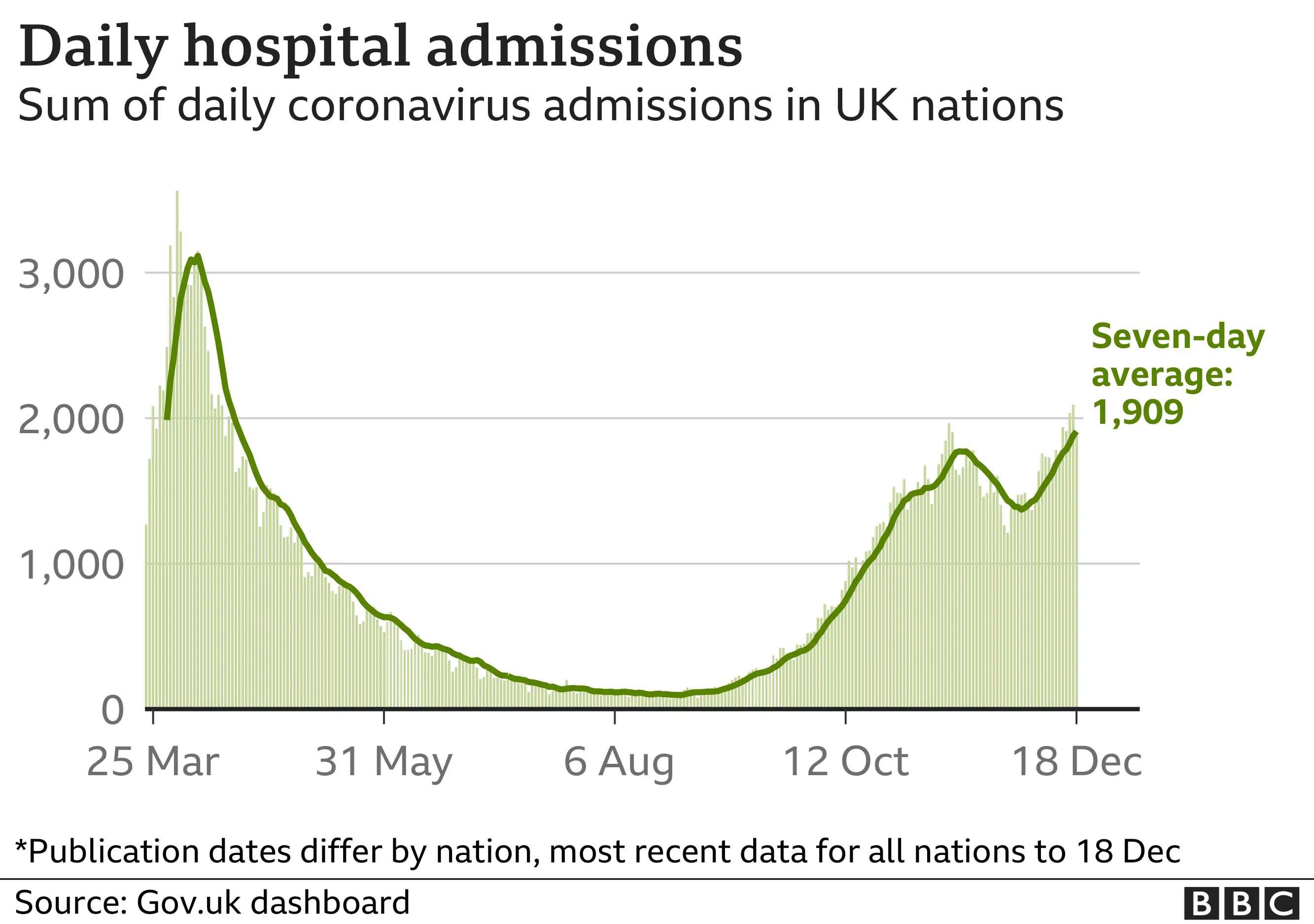

University College London clinical research director Prof Christina Pagel says the situation is "alarming".
She predicts that by the end of next week, the NHS could exceed the total numbers seen in hospital in the peak in the spring, putting immense strain on the NHS at the busiest time of year.
Why staffing Nightingales is the problem
The growing pressure has prompted many to start wondering why the Nightingales have not been opened. Tory MP John Redwood has been vocal on Twitter calling for them to be put to use.
These, after all, were the network of emergency field hospitals built during the spring to cope when hospitals could not - most were not used.
There are seven in England. Scotland, Northern Ireland and Wales established their own field hospitals but these were not known as Nightingales.


Wales has now decomissioned its 2,000-bed field hospital, which was at the Principality Stadium, although it has a network of smaller sites are now available, some of which are linked to existing hospitals. A number of these are treating Covid patients.
But of the original sites only two - one in Exeter and one in Belfast - are currently taking Covid patients.
Manchester's is being used for non-Covid patients who are in the final stages of recovery, while the centres in Harrogate and Glasgow are carrying out diagnostic tests and outpatient appointments.
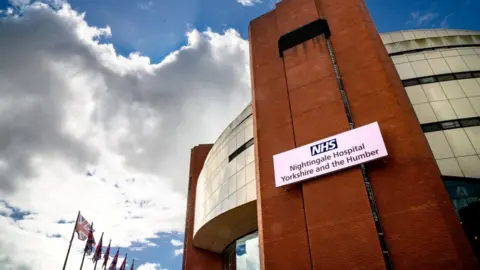 NHS England/Simon Dewhurst
NHS England/Simon DewhurstWhy, if the NHS is under so much pressure, are others not open?
The simple answer, says British Medical Association leader Dr Chaand Nagpaul, is staffing.
"We have 80,000 vacancies. You just can't have a doctor or nurse in two sites at once."
It is a sentiment that is echoed on the ground.
Rupert Pearse, an intensive care doctor in east London, said the situation in the capital as well as in north Kent and south Wales "remains very difficult".
But he says the Nightingales will not help because of the lack of trained staff.
"We are already 'diluting' our skilled ICU nursing staff with less-well-trained volunteers."
How hospitals are managing demand without them
The truth is they were built as an insurance option - to be used as a last resort.
So instead hospitals have focused on managing demand.
That means a ruthless prioritisation of care. Routine work, such as knee and hip replacements, has been cancelled in the areas that are facing the most pressure to free up space.
That is why it is no coincidence - despite the variation in Covid cases across the country - that regionally, hospitals have very similar levels of occupied beds once you take into account Covid and non-Covid patients.
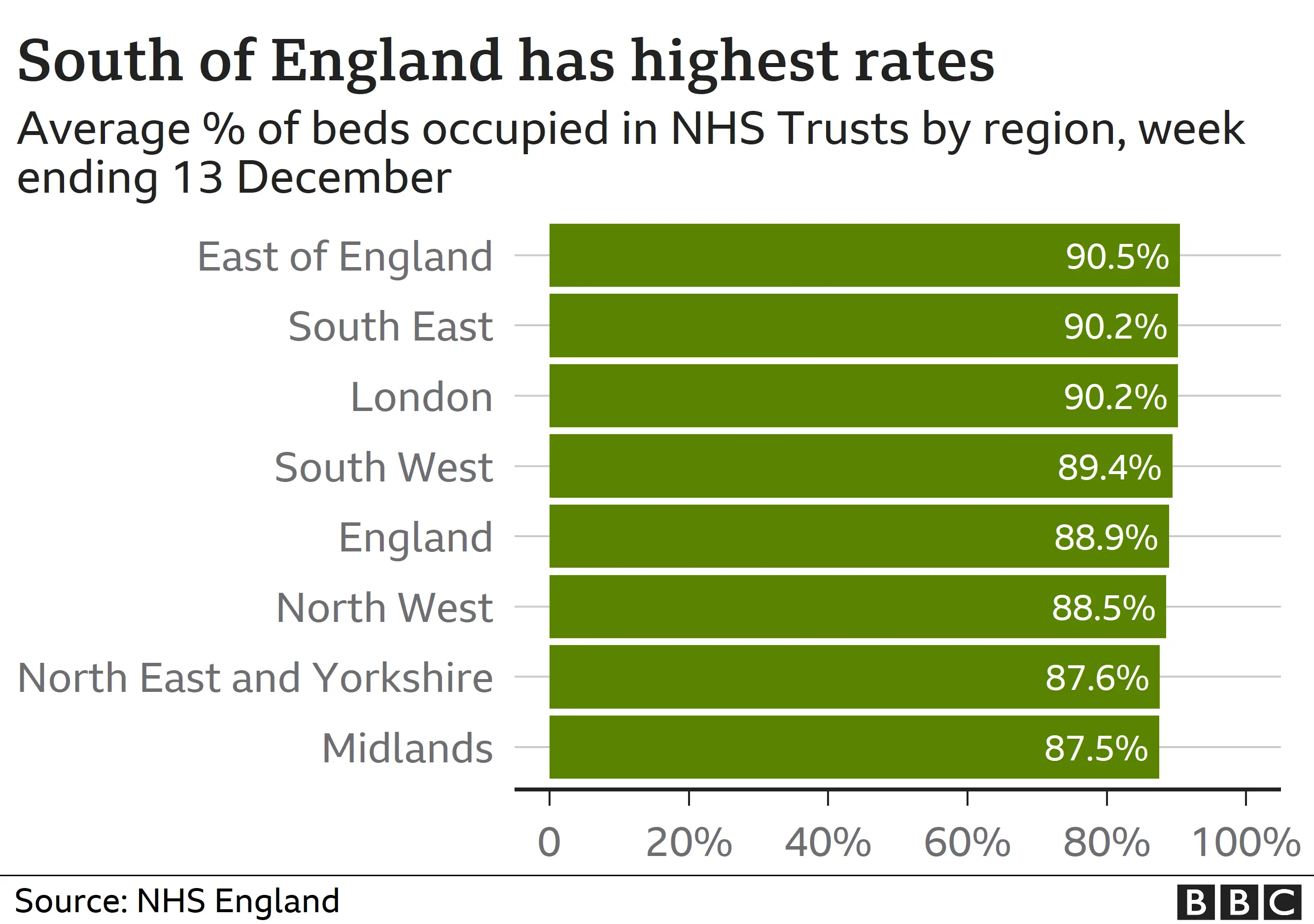

Hospitals have been carefully managing demand to ensure they have a bit of wriggle room available.
But there is, of course, a limit to how long that can work.
Even then though doubts remain about how much use the Nightingales will be.
As well as staffing, some have argued there is just not the equipment available to treat the sickest patients, who can suffer everything from blood clotting to multiple organ failure.
"We can given them oxygen, but that's about it," said one doctor who worked in one of the Nightingales in the first wave.
"In some there are not even appropriate toilet facilities. They were built in a rush because we were desperate."
Will they ever be used en masse?
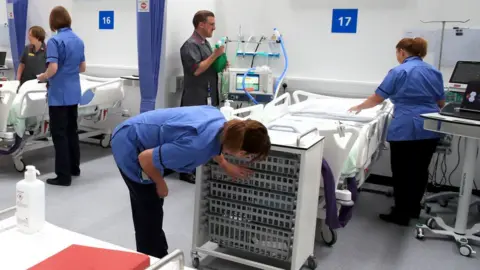 PA Media
PA MediaDespite the problems, Chris Hopson of NHS Providers, which represents hospital trusts, believes it was still the right decision to build them.
"Remember in the spring, Italian hospitals in Lombardy were overwhelmed.
"We needed an insurance policy in case that happened."
He says even without the complex equipment, they could still have a role given many patients are now treated on general wards with oxygen therapy.
But he says the NHS will use "every ounce" of existing capacity it can muster before the Nightingales are used routinely.
He predicts the next 10 to 15 days will be crucial - and if the numbers coming into hospital do not start dropping, hospitals could find themselves getting very close to the limit.
"If we don't end up using them, we should think of that as a success," he added.
Follow Nick on Twitter
